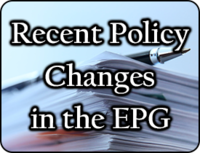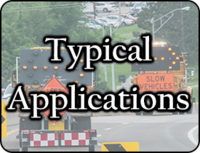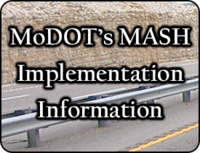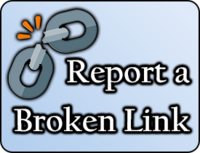Main Page: Difference between revisions
m article construction |
No edit summary |
||
| Line 1: | Line 1: | ||
__NOTOC__ | |||
<div style=" | <div style="margin-top:0px; margin-bottom:0px; background-color:black; border-radius:5px; box-shadow:5px 5px 5px #888888; border:1px solid black"> | ||
<center> | |||
|- | <div class="jcarousel-wrapper" style="margin-top:7px; margin-bottom:0px"> | ||
| | <div class="jcarousel jcarousel-randomize"> | ||
| | <div class="jcarousel-list"> | ||
<div class="jcarousel-item"> | |||
{{banner|direction=left|width=20%||section=Engineering Policy Guide|section-link=Main Page|image=EPG-001.png}} | |||
</div> | |||
<div class="jcarousel-item"> | |||
{{banner|direction=left|width=40%||section=Engineering Policy Guide|section-link=Main Page|image=EPG-002.png}} | |||
</div> | |||
<div class="jcarousel-item"> | |||
{{banner|direction=left|width=40%||section=Engineering Policy Guide|section-link=Main Page|image=EPG-007.png}} | |||
</div> | |||
<div class="jcarousel-item"> | |||
{{banner|direction=left|width=40%||section=Engineering Policy Guide|section-link=Main Page|image=EPG-004.png}} | |||
</div> | |||
<div class="jcarousel-item"> | |||
{{banner|direction=left|width=40%||section=Engineering Policy Guide|section-link=Main Page|image=EPG-005.png}} | |||
</div> | |||
<div class="jcarousel-item"> | |||
{{banner|direction=left|width=40%||section=Engineering Policy Guide|section-link=Main Page|image=EPG-006.png}} | |||
</div> | |||
<div class="jcarousel-item"> | |||
{{banner|direction=left|width=40%||section=Engineering Policy Guide|section-link=Main Page|image=EPG-003.png}} | |||
</div> | |||
</div> | |||
</div> | |||
</div> | |||
</center> | |||
</div> | |||
{| style="text-align:center; margin-top:12px; margin-left: auto; margin-right: auto; font-style:italic; font-size:20px; font-family:Verdana, Geneva, sans-serif !important;" | |||
|- | |- | ||
! style="padding-left:90px; padding-right:90px; | | |||
---- | |||
Our mission is to provide a world-class transportation system that is</br>safe, innovative, reliable and dedicated to a prosperous Missouri. | |||
---- | |||
|} | |||
{| style="width:100%; text-align:center; margin-top:0px;" | |||
|- | |||
| [[image:Google search.png|200px|bottom|link=https://epg.modot.org/modot/EPG_GoogleSearch.html]] | |||
| [[image:recent_changes.png|200px|bottom|link=Recent Policy Changes in the EPG]] | |||
| [[image:TA_image.png|200px|bottom|link=616.8_Typical_Applications_(MUTCD_6H)#616.8.2.1_Typical_Applications]] | |||
| [[image:MASH_Info.png|200px|bottom|link=https://epg.modot.org/files/c/ce/MASH_Implementation.pdf]] | |||
|- | |||
|} | |||
<div style="margin-top:12px; font-size:95%; padding:5px; border:1px solid black;background-color:white; color:black; border-radius:5px; box-shadow:5px 5px 5px #888888"> | |||
<b>MoDOT’s three pillars of “Safety, Service and Stability” steer our leadership and employees. Our commitment to safety includes keeping both customers and ourselves safe. Our service includes providing outstanding customer service, delivering transportation solutions of great value and using resources wisely. Keeping roads and bridges in good condition, operating a reliable and convenient transportation system, and advancing Missouri’s economic development reflect our commitment to stability.<br/>Innovative concepts, such as [[:Category:143 Practical Design|Practical Design]] and [[:Category:139 Design - Build|design-build]], are used to deliver our commitments. These and other forward-thinking concepts shape the content of the ENGINEERING POLICY GUIDE (EPG). This document provides a single reference for all engineering and engineering-related [https://modotgov.sharepoint.com/sites/br Bridge], [https://modotgov.sharepoint.com/sites/cm Construction], [https://modotgov.sharepoint.com/sites/DE/ Design], [https://modotgov.sharepoint.com/sites/ts Highway Safety & Traffic], [https://modotgov.sharepoint.com/sites/mt Maintenance], [https://modotgov.sharepoint.com/sites/tp Planning] and [https://modotgov.sharepoint.com/sites/DE/SitePages/Right-of-Way.aspx Right of Way] guidance.</b> | |||
</div> | |||
{| style="width:100%; text-align:center; margin-top:12px;" | |||
|- | |||
| [[image:Broken link.png|200px|bottom|link=mailto:engineering.policy@modot.mo.gov?Subject=Report%20a%20broken%20link&Body=Please%20include%20the%20broken%20link,%20article%20number%20and%20a%20screenshot%20if%20possible]] | |||
| [[image:Approval process.png|200px|bottom|link=Help_Article#EPS_Approval_Process]] | |||
| [[image:E-update.png|200px|bottom|link=Help_article#Signing_Up_for_E-Updates]] | |||
|- | |||
|} | |||
<div style="margin-top:12px; font-size:95%; padding:5px; border:1px solid black;background-color:white; color:black; border-radius:5px; box-shadow:5px 5px 5px #888888"> | |||
<b>The design concepts and criteria within the Engineering Policy Guide (EPG) are intended for use when designing new construction projects on new locations or designing reconstruction projects on existing locations. Projects on existing roadways call for a flexible, practical, and performance-based approach to design. The EPG encourages flexible and practical design, which emphasizes the role of the planning and design teams in determining appropriate design dimensions based on project-specific conditions and existing and future roadway performance, more than on meeting specific nominal design criteria. Although new design values and concepts may be presented throughout the EPG, this does not imply that existing roadways are unsafe, nor does it mandate the initiation of projects to improve existing roadways. While the EPG does include nearly all engineering related aspects of roadway design and maintenance it is not all encompassing. The use of properly equipped and maintained vehicles, operated by a capable user, is also pertinent to the safe and efficient operation of a transportation facility.</b> | |||
</div> | |||
<div style="margin-top:12px; background-color:black; color:white; border-radius:5px; box-shadow:5px 5px 5px #888888"> | |||
<center>'''The Engineering Policy Guide is maintained via the use of Microsoft Edge. For optimal viewing quality, please choose Microsoft Edge for your browser.'''</center> | |||
</div> | |||
Latest revision as of 08:22, 12 December 2024
|
Our mission is to provide a world-class transportation system that is |
|---|

|

|

|

|
MoDOT’s three pillars of “Safety, Service and Stability” steer our leadership and employees. Our commitment to safety includes keeping both customers and ourselves safe. Our service includes providing outstanding customer service, delivering transportation solutions of great value and using resources wisely. Keeping roads and bridges in good condition, operating a reliable and convenient transportation system, and advancing Missouri’s economic development reflect our commitment to stability.
Innovative concepts, such as Practical Design and design-build, are used to deliver our commitments. These and other forward-thinking concepts shape the content of the ENGINEERING POLICY GUIDE (EPG). This document provides a single reference for all engineering and engineering-related Bridge, Construction, Design, Highway Safety & Traffic, Maintenance, Planning and Right of Way guidance.

|

|

|
The design concepts and criteria within the Engineering Policy Guide (EPG) are intended for use when designing new construction projects on new locations or designing reconstruction projects on existing locations. Projects on existing roadways call for a flexible, practical, and performance-based approach to design. The EPG encourages flexible and practical design, which emphasizes the role of the planning and design teams in determining appropriate design dimensions based on project-specific conditions and existing and future roadway performance, more than on meeting specific nominal design criteria. Although new design values and concepts may be presented throughout the EPG, this does not imply that existing roadways are unsafe, nor does it mandate the initiation of projects to improve existing roadways. While the EPG does include nearly all engineering related aspects of roadway design and maintenance it is not all encompassing. The use of properly equipped and maintained vehicles, operated by a capable user, is also pertinent to the safe and efficient operation of a transportation facility.






